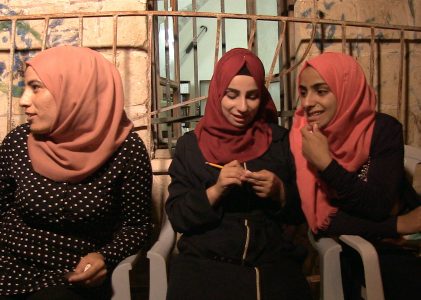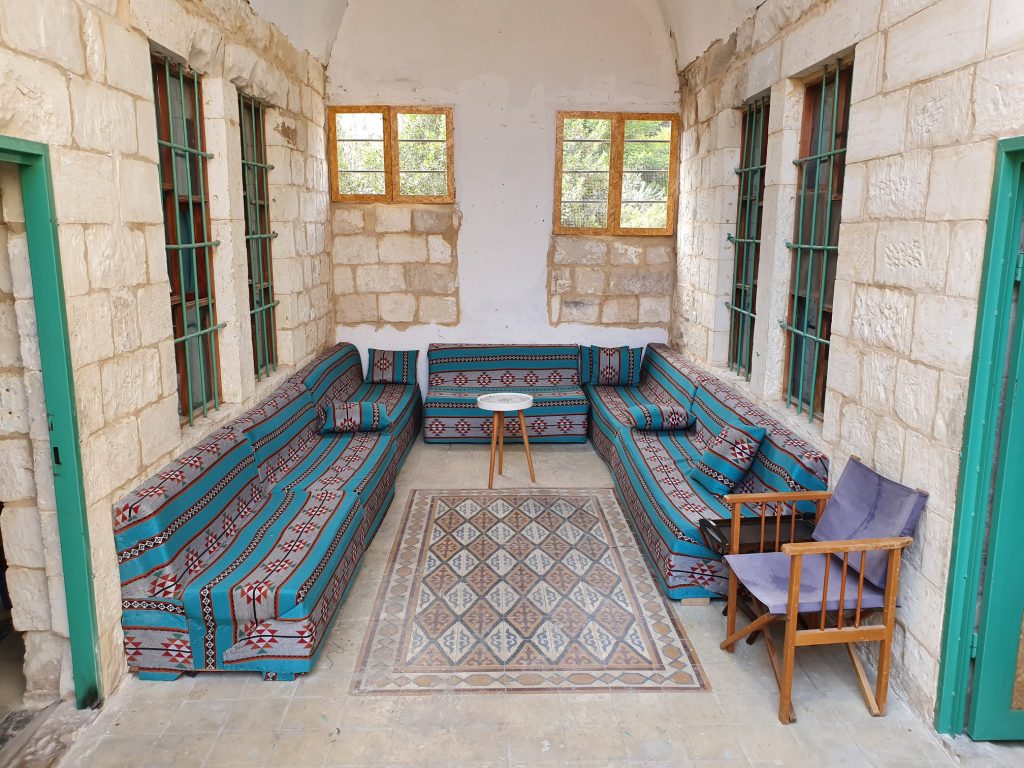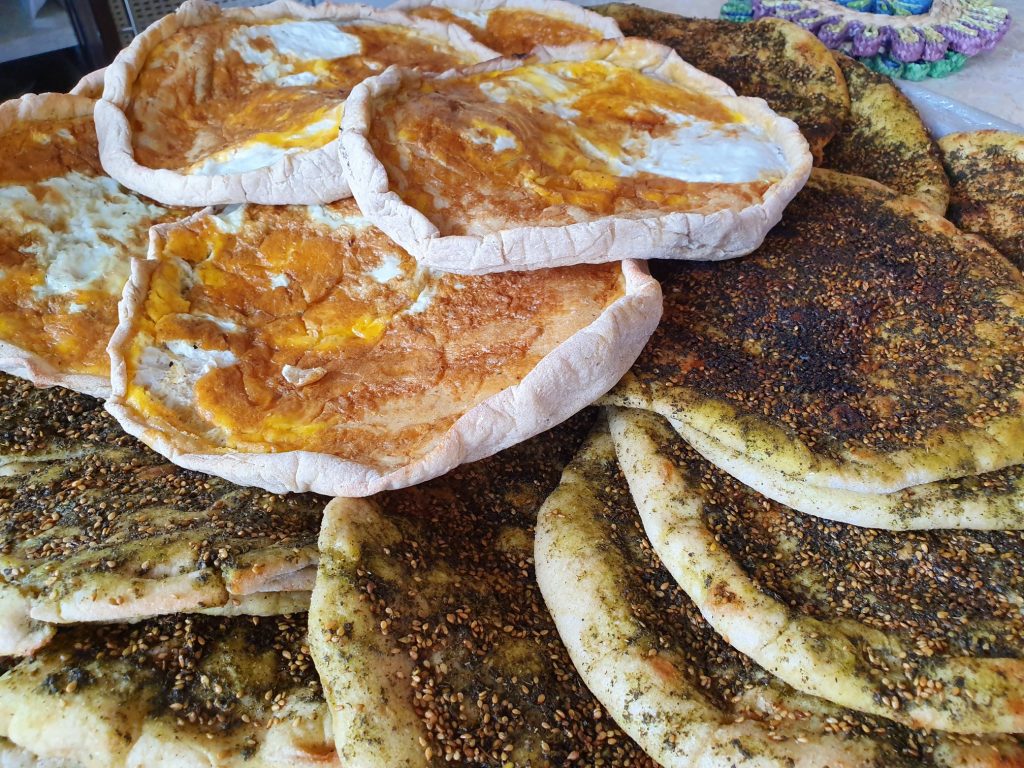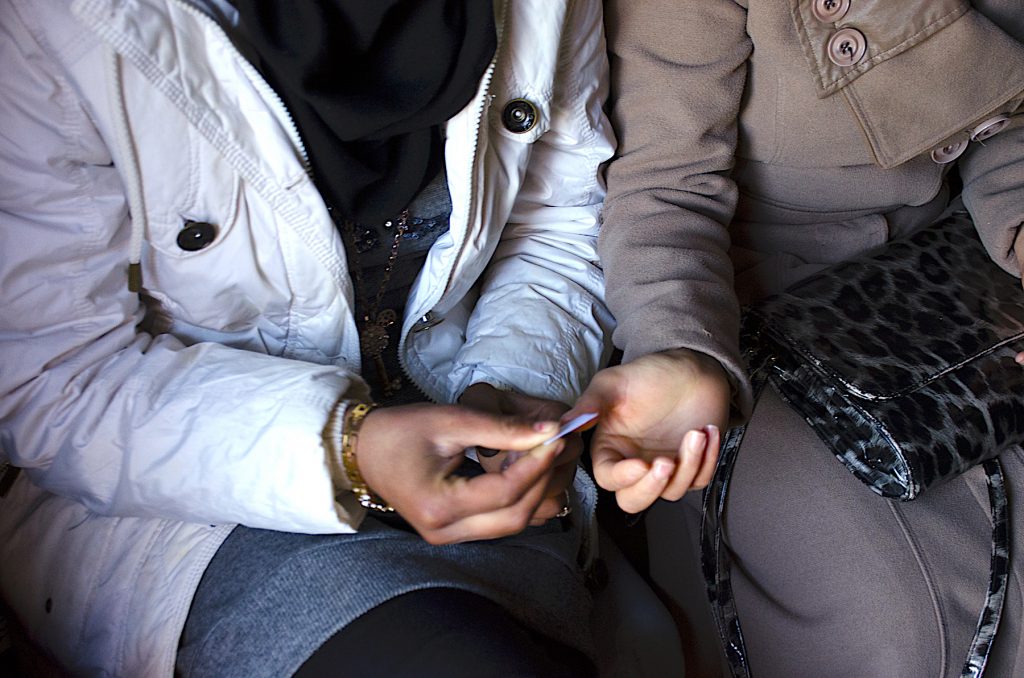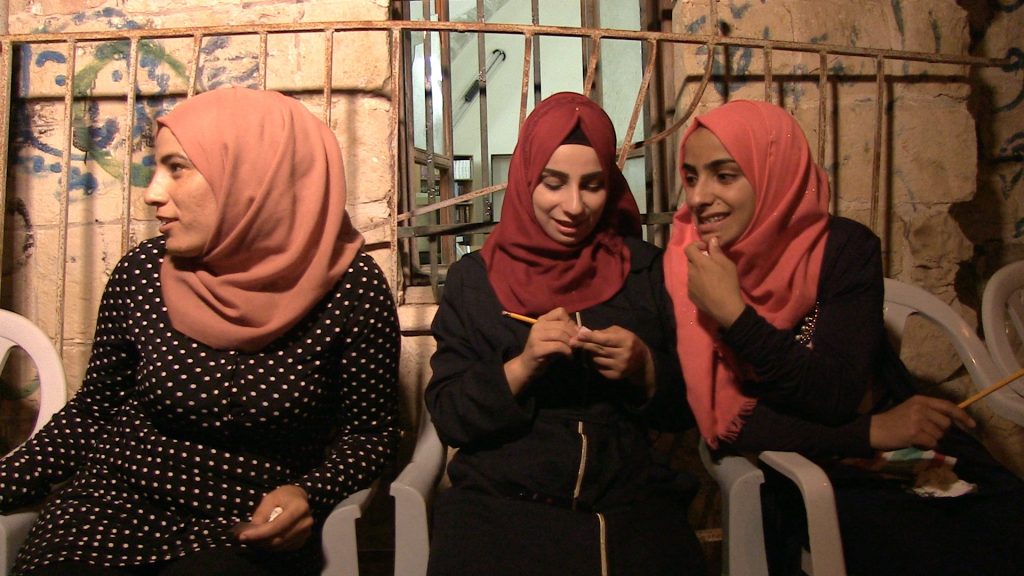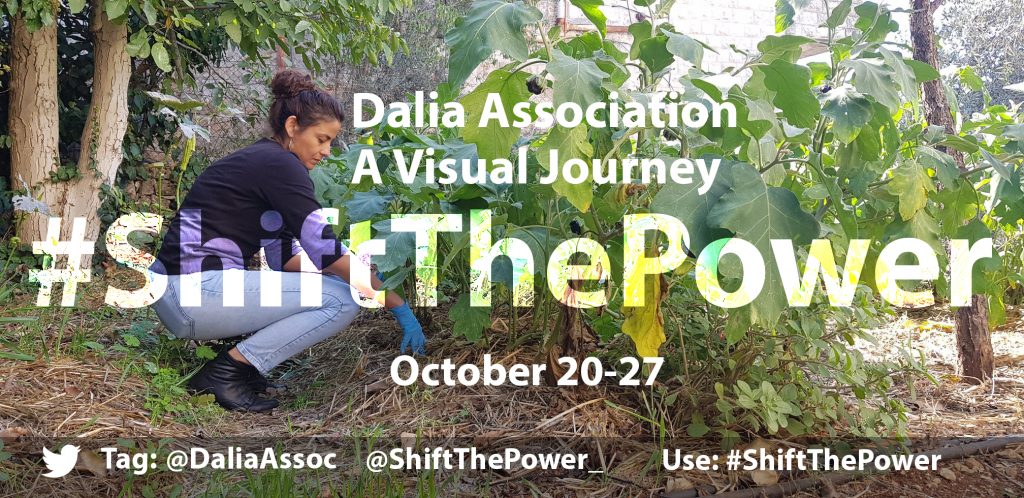
We hope you could also join us in sharing your moments of shifting power by tagging us on Twitter @DaliaAssoc and @ShiftThePower_ and using the hashtag #ShiftThePower.
Here we go! Get your engines ready, the journey will begin!

Background: As part of Dalia’s IBDA’ (start in Arabic) in the schools’ program, we saw that the students felt helpless in this context of living under occupation, coupled with the fast urban expansion. In the first meetings, they were skeptical and thought that they can’t do much for their community. Deep conversations with these smart students enabled us to unlock their talents. In this photo, we were discussing the ability to mobilize local resources. They started looking at things differently, and most important of all, they started believing in themselves and trusting local resources to achieve their community needs. It’s important to instill such values in young citizens, as they will take an active role in this society in the future. In fact, they are doing it now!
Taking a turn now. Here’s another stop in our journey to #ShiftThePower.
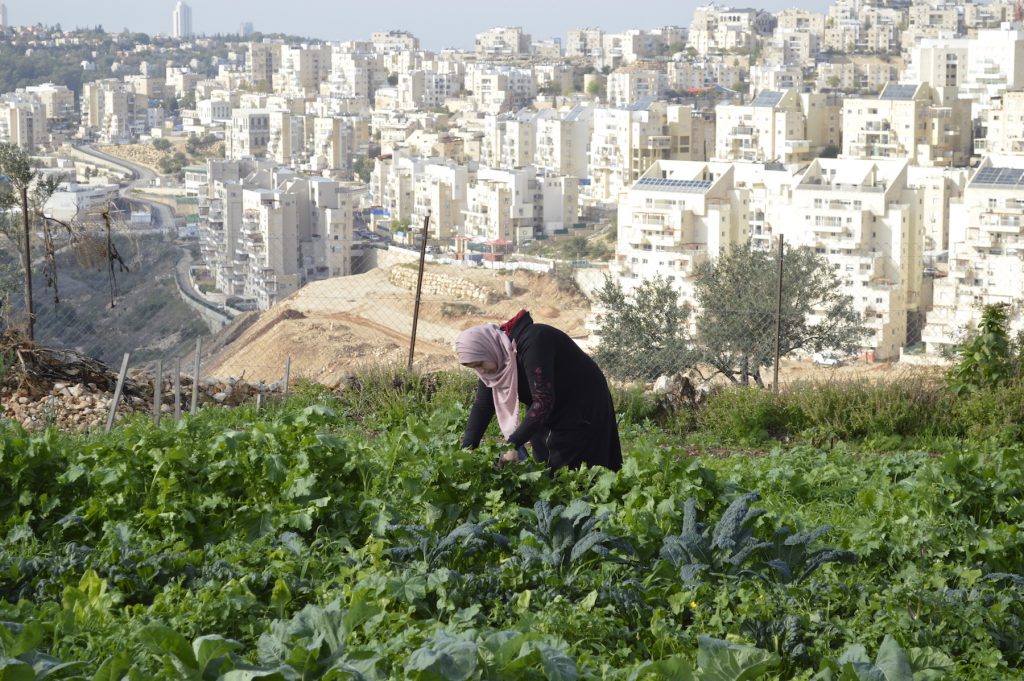
Background: Dalia believes in achieving holistic development. This means our community development approach focuses on the ecological, local economy, social and cultural dimensions.
As a community foundation that realizes our rights as Palestinians to control our resources for our own durable development, this also means understanding how to mobilize local resources to protect our indigenous seeds and produce healthy and clean produce with natural inputs. This image was taken as part of a training that Dalia organized in 2018 with the Om Sleiman Farm. The training was based on teaching the concepts of sustainable farming and the model of Community Supported Agriculture (CSA). The Om Sleiman Farm itself is located by the Israeli Separation wall and at the margins of a nearby Israeli settlement. The land was under threat of confiscation, so the owner decided to offer it to local youth who wanted to revive Palestinian indigenous farming. You can read more about the farm here.
We proceed down the road, with our safety hats on.

Background: As part of our role as local resources mobilizers, we partner with local initiatives, to raise money to support solutions for issues in our community. This was taken during a fun-raising event with the youth group: Cycling Palestine. We were able to raise around $900 USD to support the Education fund, where we give scholarships for students to continue their education at local universities.
Moving on with our expedition. Today we are sharing two photos with you.
Background: We are sharing two photos today. The first is of a local hostel/guesthouse in the heart of the old city of Nablus. The second is food fresh known as “Mu’ajanat” from a local bakery in the old city.
We are deliberate about supporting local businesses, because holistic development, means strengthening our local economy. The Turquoise Hostel is a youth project aimed at establishing a research center aimed at protecting heritage buildings in the old city of Nablus while drawing on local sources of income from the guest house and the Cafe “Antique”.
As a result of aid in Palestine, local and international organizations have been conducting their workshops and meetings in hotel meeting halls, with menus that aren’t local. At Dalia, we encourage local businesses and provide meals from our Palestinian traditional cuisine.
Taking a left turn here.
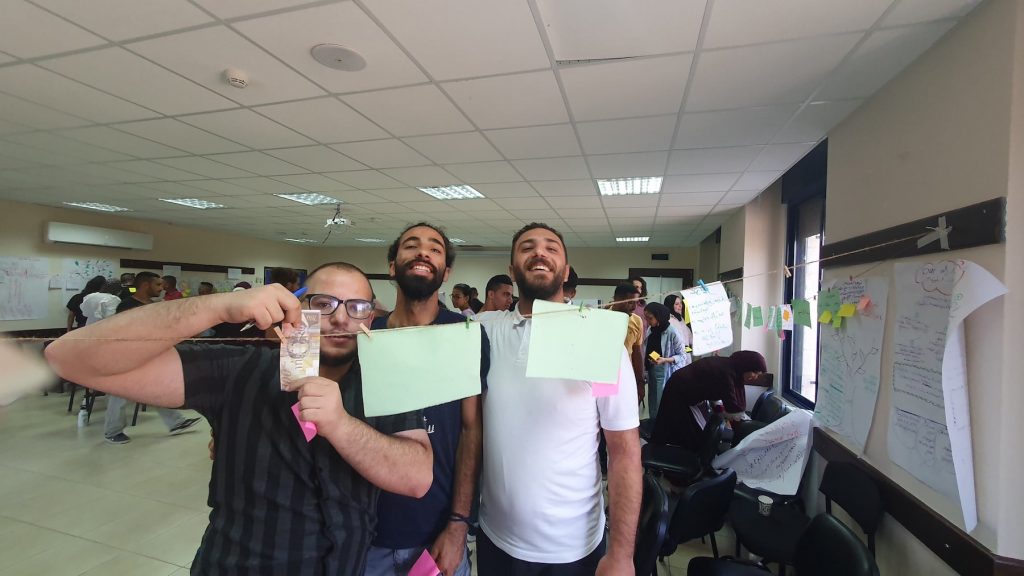
Background: Freedom of movement is very limited in Palestine. There are over 700 obstacles, roadblocks, and checkpoints in Palestine. Through our work, we emphasize the importance of staying connected across all of what is known as historical Palestine. In this photo, we see friendships created between youth from different villages and cities. This was taken during the First Community Philanthropy Camp last August, where we gathered young leaders of community initiatives to enhance the spirit of community work among individuals and groups from different regions. We wanted to build real partnerships and raise awareness about the impact of conditional external funding. At first, we were worried that due to the aforementioned fragmentation, the youth wouldn’t be willing to work together, and despite all that, it felt like they (including us) have all known each other for decades.
Making our stop longer here, we wanted to share with you more from the First Community Philanthropy Camp.
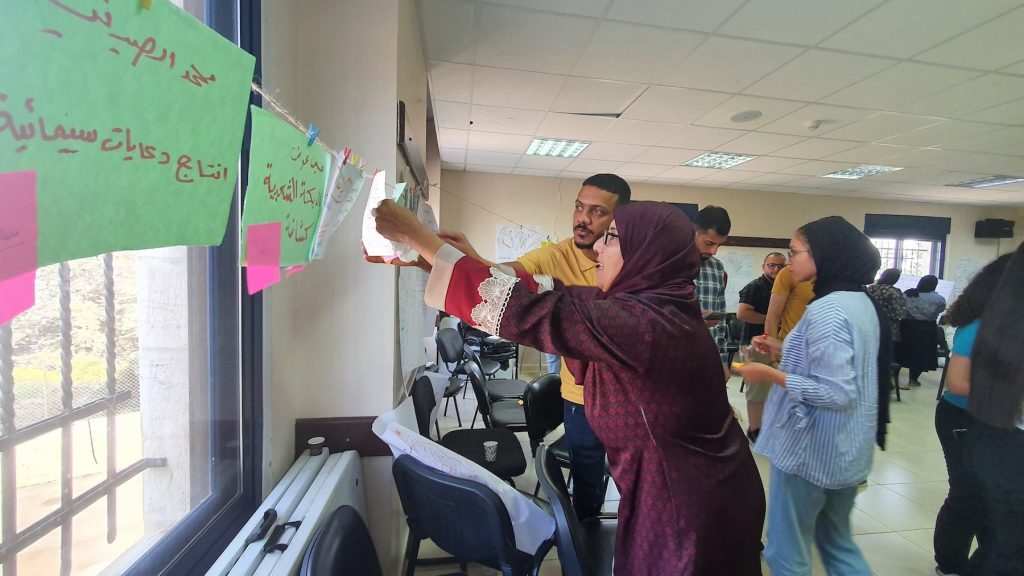
Background: In our training with initiative leaders, we always ask them to self-reflect, and think of their hobbies, passions, and skills. There is always a moment of silence, followed by “I don’t have much”. Then a few moments later, and after bringing up a few examples, they realize that they are rich and full of expertise; that money isn’t always the main resource. Then the most exciting thing happens: as you can see in the picture, leaders of initiative start exchanging their skills. For example, if one leader is creative in making films, s/he offers to produce a video for another leader of an initiative that needs to promote his/her initiative. Yup! Like a good old barter.
Now, this is our final stop!
Background: In these two pictures, you are witnessing a public voting day. Members of the community are invited to listen to leaders of initiatives who offer solutions to issues in their communities. Each tiny piece of paper is marked with a decision, that is collected in a voting box and later counted. The winning initiative gets the most votes and is later supported with a seed grant. This is what we call participatory grantmaking, and decision-making. In the context of Palestine, this is crucial, as members of the community are so used to projects that have pre-set priorities, and don’t necessarily take their actual needs into consideration.
Thank you for taking this journey with us. We hope you could also join us in sharing your moments of shifting power by tagging us on Twitter @DaliaAssoc and @ShiftThePower_ and using the hashtag #ShiftThePower.

